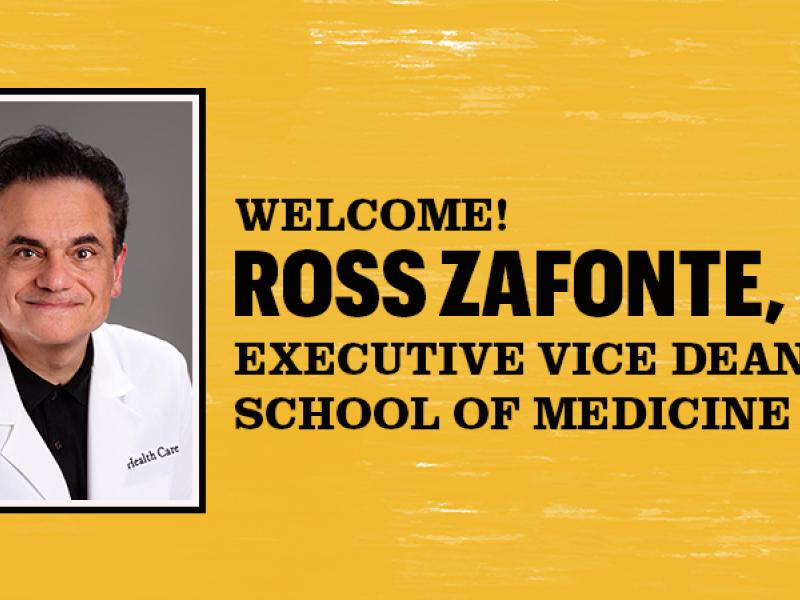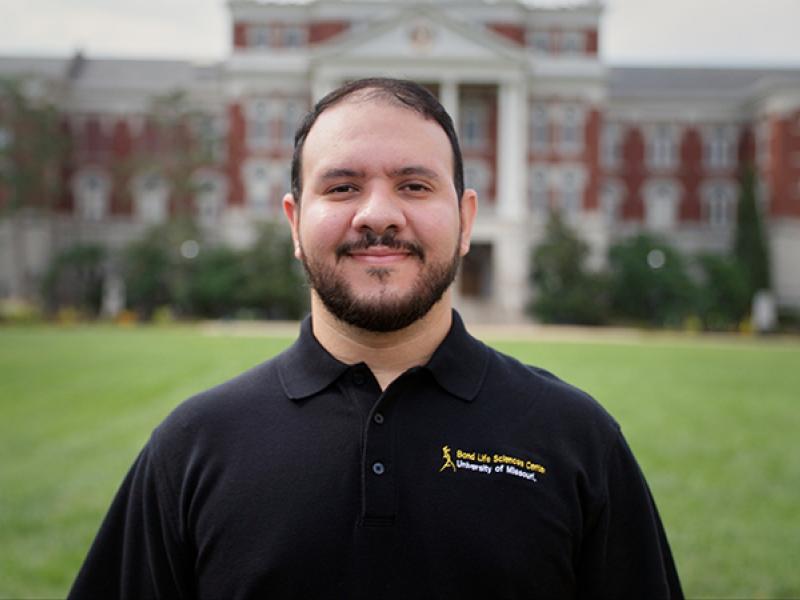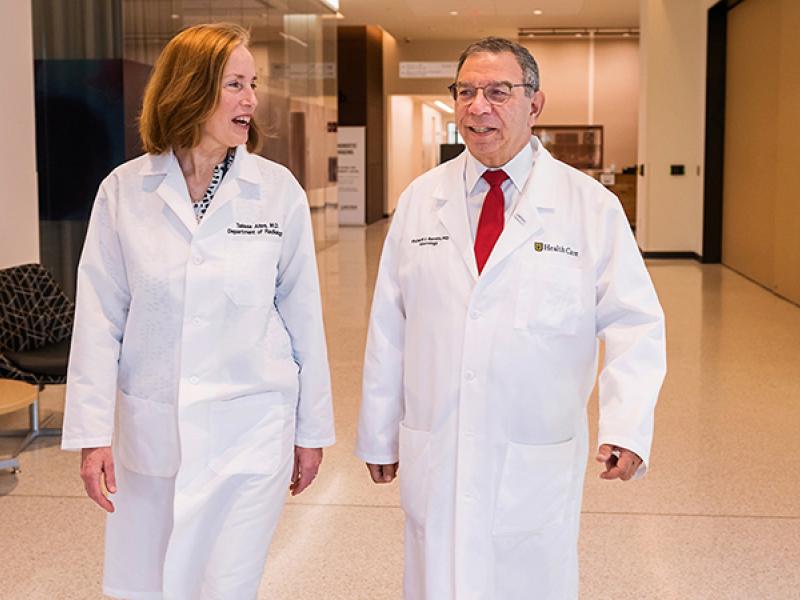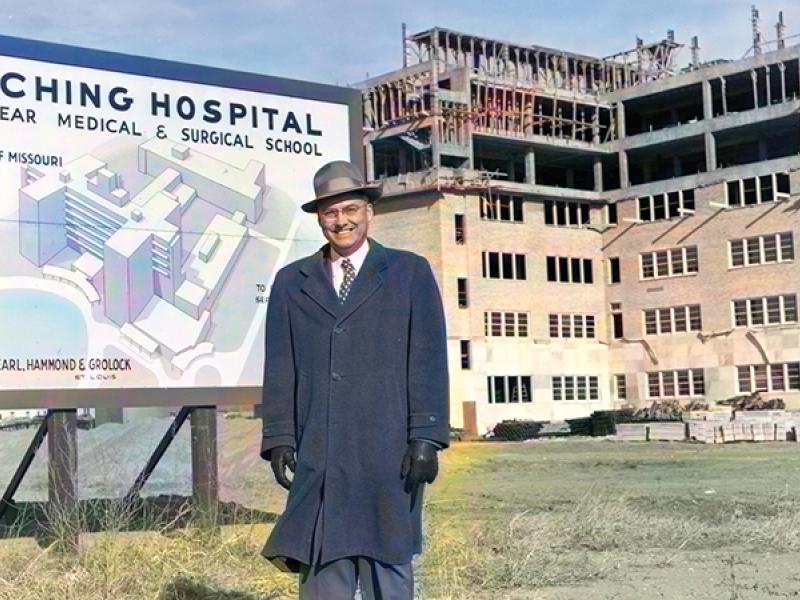
When the University of Missouri System launched the NextGen Precision Health initiative in 2019, Steven Zweig, MD ’79, MSPH ’84, knew it was time to make a similar investment in research at the MU School of Medicine. “The pace we were going wasn’t quite as fast as we would like, and the path we were taking wasn’t as strategic,” says the medical school dean.
In 2021, Zweig launched a new recruitment plan called RISE UP, an acronym for Research Investment, Strategic Engagement University Partnerships. The plan’s foundation is a governance and operations infrastructure within the dean’s office that supports strategic research priorities across the translational continuum. The school recruited three research deans to join Senior Associate Dean William Fay in the Office of Research. The newly formed leadership group will expand the types of research programs at MU: Russ Waitman came from the University of Kansas to serve as associate dean for informatics. Parvesh Kumar arrived from the University of Nevada, Las Vegas to become associate dean for clinical and translational research. And Gillian Bartlett-Esquilant left McGill University in Canada to become associate dean for population health and outcomes research. Their expertise covers everything from wet laboratory investigations and clinical trials to patient outcomes and data-driven discoveries.
If it sounds similar to NextGen’s goals, it should. “Aspiring to address President Choi’s goals for research growth and NextGen, we really tried to look at what our existing strengths and opportunities were and line those up as much as possible,” Zweig says. “Then our goal was to ask: What do the faculty who are doing work in those areas need to take them to the next level, and who are the people who would provide added value to the strengths we already have? So, we asked them to create proposals for hiring faculty who would represent those areas of strength and opportunity.”
Previously, hiring took place at the departmental level. But within the new strategic plan, the recruiting process is elevated to include representatives from across the university, including MU Health Care, the provost’s office and the MU Office of Research and Economic Development. This 10-person steering committee reviews all proposals to launch new research, open new positions and approve research-related offers. Working closely with department chairs, the committee has approved 35 new research positions, and offers have gone to 14 faculty who will work in multiple departments or colleges around interdisciplinary research topics.
Also new is the dean’s explicit funding expectations of tenured faculty, who are now required to support at least 50% of their time through research funding, patient care, teaching or administrative functions. To support faculty research efforts, the school created a pilot grant funding opportunity called TRIUMPH (Translational Research Informing Useful and Meaningful Precision Health). In spring 2021, it awarded 30 investigators up to $100,000 over two years for their work in translational research and precision medicine. “We want to do everything we can to help people to be successful,” Zweig says. “At the same time, we’ve got to have measures of success and accountability.”
Accelerating cancer research
Michael Bukstein, MD ’70, has had a long and productive career, and that’s putting it mildly: He has the longest tenure of any physician at the Hannibal Clinic in Hannibal, Missouri, where he has been a general surgeon since 1975. He’s trained numerous residents. And he gave back to his community as president of the MU Medical Alumni Organization and chair of Missouri’s Comprehensive Cancer Action Plan. “I had done everything I wanted to do except for research,” he says. So, in 2008, Bukstein and his wife, Sharon, donated $1.1 million to the MU School of Medicine to establish the Michael J. and Sharon R. Bukstein Chair in Cancer Research. The position is held by Raghuraman Kannan, who studies nanoparticle-based drug delivery in cancer therapy, which targets tumors without damaging healthy tissue.
This story originally appeared in Show Me Mizzou Magazine on Dec. 17, 2021

Highlighting the promise of personalized health care and the impact of large-scale interdisciplinary collaboration, the NextGen Precision Health initiative is bringing together innovators from across the University of Missouri and the UM System’s three other research universities in pursuit of life-changing precision health advancements. It’s a collaborative effort to leverage the research strengths of Mizzou toward a better future for the health of Missourians and beyond. The Roy Blunt NextGen Precision Health building at MU anchors the overall initiative and expands collaboration between researchers, clinicians and industry partners in the state-of-the-art research facility.
Article Spotlight
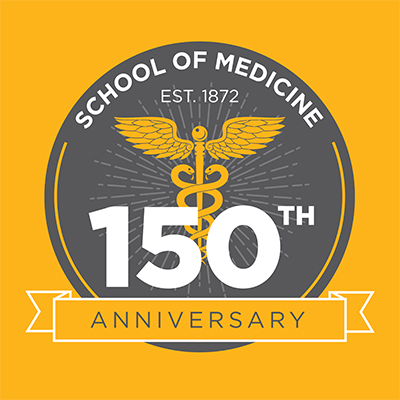
Celebrating the Past and Supporting the Future
While the academic prowess of our students continues to rise, educational debt can be a barrier to many prospective physicians. In honor of 150 years of service to medical education, help us in raising $150,000 to invest in our future physicians.
Give Now


